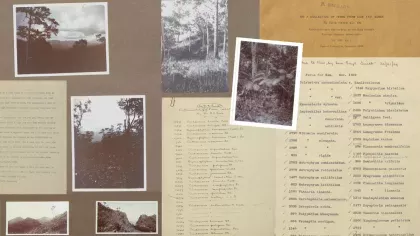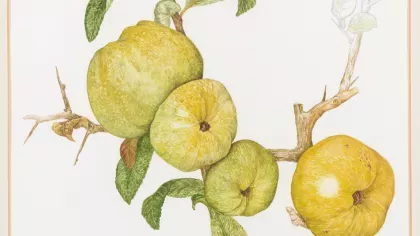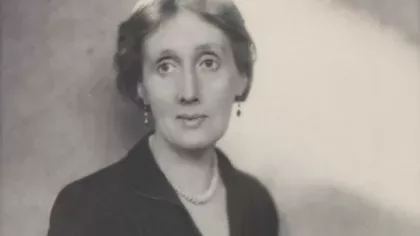The Joseph Dalton Hooker Correspondence project - a preview
Introducing the Joseph Dalton Hooker Correspondence Project, a new initiative by Kew to digitise and transcribe the letters of Joseph Hooker, great Victorian explorer-botanist and renowned director of Kew Gardens.

I have just started working on a new project at Kew - The Joseph Dalton Hooker Correspondence Project. This means I get to explore the Kew archive collection of Joseph Hooker's personal and professional papers in preparation for creating an online collection of this often-overlooked scientist's most interesting missives. Although the letters will not start to go online until the beginning of next year I couldn't resist giving you all a sneaky preview of the project and sharing my new found enthusiasm for Sir Joseph Dalton Hooker.
Who was Hooker?
Those of you who know a little about the history of Kew Gardens may recognise the name 'Hooker'. Joseph Hooker was Director of the Gardens from 1865 to 1885 during their Victorian heyday, having succeeded his father Sir William Jackson Hooker in the role. Kew was then at the centre of the botanical world, playing, among other things, a major role in orchestrating what crops were grown in the colonies and shaping the landscape of the British Empire.
A mover and shaker of the Victorian scientific scene, Hooker had an impressive network of correspondents, the most famous being Charles Darwin. Hooker was the great evolutionist’s earliest confidant for his theories and they maintained a lifelong correspondence. Though Darwin's reputation as a scientist now far outstrips awareness of his friend Hooker, hopefully Kew can begin to bring Hooker to a wider audience. Hooker's letters to Darwin along with others to prominent men of botany, the wider scientific world and personal letters to his family will be digitised and made available online as part of the Joseph Dalton Hooker Correspondence Project.
Hooker the Traveller
Though he may be best known as a Director of Kew, Hooker also had a life beyond the walls of the Gardens. The letters in the Kew archive reveal him as having been an adventurous traveller throughout his life: from his earliest scientific trip as assistant surgeon and naturalist to Sir James Clark Ross' Antarctic expedition in 1839-43, to an 8,000 mile journey across America in 1877 at age 60 - though from the looks of things in later life he travelled in considerable style.
In the 19th century, travel for the purpose of collection was one way to establish yourself as a credible naturalist. It was Hooker's pioneering exploration of India and the Himalayas (1847-1851) which cemented his scientific reputation. During the trip he discovered many species of Rhododendron, species which he then introduced to RBG Kew, starting a global craze. Many of these species can still be seen in Kew's Rhododendron Dell.
Hooker in India
Hooker's Indian letters paint a vivid picture of his trek through the little-explored Himalayas to observe the terrain and collect the unknown vegetation. On this quest for plant riches he fell foul of Rajah's, rickety rope bridges, lack of supplies, leeches, and constant threat to his precious botanical collections and to his own safety under difficult travelling conditions. The journey even claimed the life of his faithful travelling companion, his dog, Kinchin:
" On the route up here I stopped at the foot of some rocks below the foot of a very long cane bridge (40 yards) and Kinchin, having scrambled up, ran on to the bridge. I could not see him and was not thinking about the dog when his shrill short barks of terror rang above the roaring torrent – before I could get up, he had lost his footing & was no more to be seen – we went on to the middle of the bridge, and straining our eyes down the boiling flood, but he had been carried under at once & swept away miles below... I went on my way sorrowing." [JDH_1_10_384-387]
Throughout these hardships Hooker remained a prolific letter writer. Many of his personal letters from this trip, to his family and to his eminent scientific friends, with these evocative anecdotes and expressions of the effort and frustrations involved in plant collecting, have never been published in their entirety. They are some of the most consulted documents in the Kew archive and they will be the first letters to go online on the new Joseph Dalton Hooker Correspondence website in 2014. Hopefully you will seek it out when it goes live and enjoy India through Hooker's words.
"This India is a wonderful place, & quite equal to all my expectations of it. I am already stunned with the vast amount of things to see, do, & get" [JDH_1_10_25-28]
JDH Correspondence Project
In the meantime I will be cracking on with preparing this material and designing the website. I am privileged that this job allows me the time and opportunity to read through Hooker's letters so I can create a transcript that users will be able to see online alongside an image of the original letter. Sometimes I have to remind myself that it is indeed a privilege as I slog through deciphering Hooker's often untidy scrawl, but it's not long before I am rewarded by an interesting story or amusing turn of phrase from Hooker's pen.
Extract from one of Hooker's letters from Kolkata, 1848 [JDH_1_10_35-38] reads:
"In the town I saw a juggler with the hooded snake or cobra, a beautiful creature, but of a rather sickly yellow colour, which coiled round his neck, & suffered itself to be teazed[sic] to phrenzy[sic]. He also swallowed an egg & brought it out by his ear;- very common India tricks all"
The work of imaging and transcribing the letters for the website has been made possible by a generous grant from the Stevenson Family’s Charitable Trust. This grant also makes provision for important conservation work to be carried out on the Hooker letters, ensuring that this record of Joseph Hooker, his work and achievements will be safely preserved, digitally online and on paper in the Kew archive for the enjoyment and enlightenment of scholars and the public.
Alongside the letters and transcripts I am currently amassing other content for the Joseph Dalton Hooker Correspondence Project website, including examples of other Joseph Hooker material held in the Kew collections: his glasses, his microscope and some of his field sketches to name a few. Other features will include essays by world-renowned Hooker scholars, some short films, and accounts from those who have been inspired by Joseph Hooker, including thoughts on Joseph Hooker, the traveller-botanist, from one famous modern globe trotter. Watch the blog for more news.
- Ginny -


